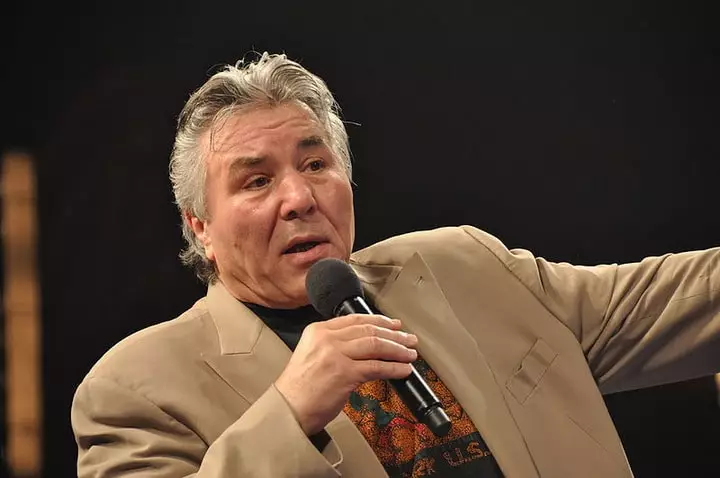In the often romanticized world of heavyweight boxing, certain names dominate the narrative—Muhammad Ali, Joe Frazier, and George Foreman, to name a few. Their legendary encounters and illustrious careers cast long shadows over lesser-known fighters who also made impressions in the ring. Among them, Mel Turnbow, a fighter with a somewhat unremarkable record, stands out ominously in the recollections of one of boxing’s toughest titans, George Chuvalo. This piece will explore Chuvalo’s reflections on Turnbow and argue why even the more obscure players in the heavyweight game deserve attention.
George Chuvalo, an icon of toughness, is renowned for his unparalleled resilience in the ring. With a career anchored by 93 fights, he retired never having been knocked down—an extraordinary feat that speaks volumes about his psychological and physical fortitude. However, at 87 years old and battling dementia, Chuvalo’s current struggles evoke a sense of urgency to remember his legacy and the fighters who shaped his career. In his lucid moments, he has provided profound insights into the sport, revealing the hardest hitters he faced, a list that surprisingly includes names like Turnbow.
Chuvalo’s experiences in the ring were colored by encounters with legendary punchers. In an interview with Maclean’s magazine, he shared his experience weathering blows delivered by Frazier—a left hook that revolutionized his vision of pain—and Foreman, whom he described as a ‘Mack truck.’ Yet, it is Turnbow, a lesser-known fighter, who captured Chuvalo’s respect and admiration with his power.
Turnbow’s professional record—9 wins and 13 losses with only 2 knockouts—might lead many to dismiss him as just another footnote in boxing history. But records seldom tell the full story, and Turnbow’s striking prowess was often overshadowed by his ring-passiveness, which many believed stifled his potential. Described as “too nice” and lacking aggression, his career offers cautionary tales of what could have been. Nevertheless, he faced some of the biggest names in boxing history, including Frazier, Foreman, and Chuvalo.
Interestingly, Turnbow is said to have knocked down Cleveland Williams twice in a bout, yet his reluctance to seize the moment cost him a victory. Such paradoxes create a complex portrait of a fighter whose reputation rests more on ‘what could have been’ rather than concrete achievements.
Mel Turnbow’s punching ability should not be underestimated. Despite his modest record, Chuvalo singled him out as one of the hardest hitters he had ever faced. Reflecting on their own match, Chuvalo remarked, “I remember just getting rocked, like, ‘Whoa man!’ Boom!” Although Turnbow might not have delivered as many knockout blows in his professional career, the power he possessed left an indelible mark on the fighters brave enough to step into the ring with him.
Further fueling Turnbow’s case for recognition is the way he trained alongside heavyweight greats. His time spent sparring with Ali during the peak of Ali’s career (1964-1967) highlights the respect he earned among the elite, as the greatest needed strong opponents for preparation. The fact that Ali kept him in regular employ suggests there was something valuable about what Turnbow brought to the training sessions, further underscoring that ring presence often eclipses mere statistics.
Turnbow’s story illustrates the myriad complexities of boxing, which frequently prioritizes glitz and glamour over grit and determination. It’s a reminder that fighters like Turnbow, who may not have attained championship glory, still played indispensable roles within the sport. They contributed to shaping the legends by challenging them in a space where preparation is key.
Although Mel Turnbow passed away in 2013, his legacy lives on through the reflections of fighters like George Chuvalo. This begs the question: How many other unsung warriors define the parameters of greatness in boxing? Understanding the deeper layers in a sport so often dominated by superstars presents an opportunity for fans and historians to honor those who may otherwise be forgotten.
While Mel Turnbow may not have achieved legendary status, his contributions and formidable power, as acknowledged by the unassailable Chuvalo, underscore the multitude of narratives within boxing history. He embodies the fighters without accolades who still managed to make an impact on the lives of champions. Recognizing these narratives allows for a richer understanding of the sport and invites a broader definition of what it means to be a contender in the heavyweight jungle.

